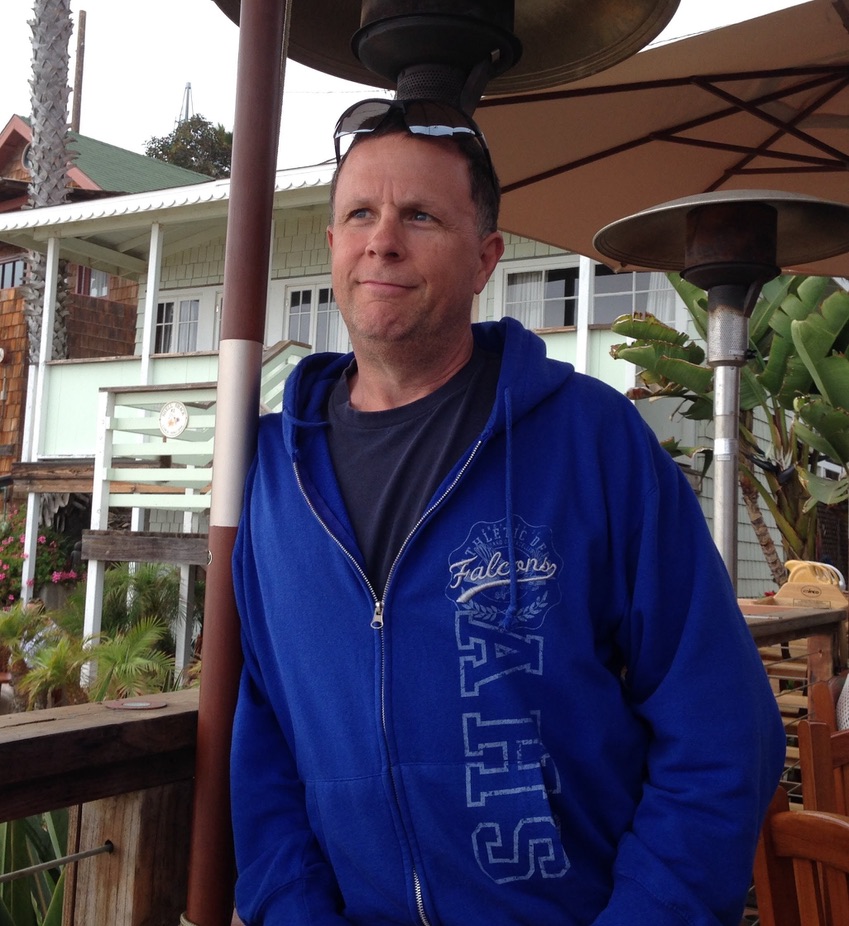The Delicate Question
I’ll get to the title in a minute or so. Allow me to take the long way home on this one. An episode of The Twilight Zone is entitled “To Serve Man.” A spaceship of aliens, the Kanamits, lands on Earth. They seem peaceful and friendly, ostensibly offering humanitarian aid for the beleaguered and war-torn Earthlings. One of Kanamit leaders speaks at the UN and leaves behind a book entitled “To Serve Man,” but the book has to be translated.
Spoiler alert (if that’s even possible for a TV episode from 1962): the book turns out to be a cookbook, and the aliens have arrived to consume the Earthlings. Oops.
I taught Moby-Dick in AP Lit for many years, though “taught” is a relative term. Most students read bits and parts and filled in the gaps with SparkNotes. Weird right? Students didn’t want to read a 520 page novel about whaling. Some even noted that the time it took reading the book was like likely shorter than the whaling journeys. False. Whalers often went out for two or three years in search of their quarry.
I heard a clip from Mike Rowe, where he was talking about the 1820 sinking of the Essex, a whaling ship. It’s an extraordinary story, and if you don’t know it, you can read all about it here. Ron Howard also did a movie entitled, In the Heart of the Sea, in case you have an appetite for it. The historical tale of the Essex later became the inspiration for Melville’s classic whale tale (and a sure cure for insomnia).

Here are a few highlights of Rowe’s story. A giant sperm whale rammed the Essex in 1820 causing it to sink 1000 miles off the coast of South America. The twenty man crew escaped in several smaller whaling boats (about 25′), each going their own way. They even salvaged some rations. So far, so good.
The sailors spent almost three months at sea, trying vainly to reach a safe place to land. Ironically, they ruled out some places (like Tahiti) because cannibalism was practiced there. Drifting on the ocean, eventually, hunger overtook them. Desperate for food, seven crewmen were eventually consumed. Yeah, that’s right. Seven.
That’s not even the strangest part. Six of the seven died of starvation and then were eaten. Okay, I get that. You’re in a small boat in the middle of the Pacific Ocean, and Bob quietly passes away. Sure, you can toss him overboard and pay your respects. But if you’re really, really hungry, your survival is hanging by a skinny thread, and Bob is gone… It would tempting. If the roles were reversed, don’t you think Bob would be looking your way for something finger licken’ good?
Remember, I said six out of seven died of starvation. In one boat, the four sailors were starving and desperate and very much alive. The whalers agreed to draw by lots to determine the unlucky soul. The lot fell to a man named Owen Coffin (with that last name, are you surprised?). Captain George Pollard, who happened to be in this boat, offered to swap places with Coffin, who refused the request, instead sacrificing himself for the good of the others. But wait, there’s more.
None of the men took the situation lightly as shipwrecks were common back then. In fact, there existed for hundreds of years a protocol for what to do in dire circumstances of shipwreck and survival. All the sailors knew it. If you signed up on a whaling ship back then, you implicitly agreed to the terms. Coffin knew that, as did the others in the small boat.
The sailor’s custom of randomly choosing a victim was called “The Delicate Question.” Wow, Delicate is an understatement. I suppose the paraphrase would be, “Who’s Next?” It’s the lottery nobody wants to win.
While it wasn’t written in any countries’ laws, cannibalization to avoid death was common practice among shipwreck survivors. A fair lottery or a volunteer, that was a legit way to stave off hunger. A rigged lottery or just choosing someone you don’t like, that was still a crime. Tough to prosecute, though.
Many countries eventually criminalized the practice of cannibalism at sea, which didn’t end it. It simply meant that sailors didn’t admit to it. Even in suspected cases, prosecutors often didn’t have the stomach to toss a shipwreck survivor into jail. Who wouldn’t have compassion on those folks?
Two final notes on all this talk of whaling and eating. Most of the survivors, when they regained their health, went back to sea. Whaling was lucrative and just something in their blood.

George Pollard, the captain of the Essex, returned to sea a year later as the captain of a whaler called Two Brothers. The ship wrecked and all the crew survived. But Pollard, nicknamed “Jonah” after losing the Two Brothers, was never entrusted to captain a ship again. For the remaining four decades he lived, Pollard followed a ritual. He locked himself in his bedroom every November 20th (the anniversary of the Essex sinking) and fasted for the day. There’s more to this story, but I’ll stop here.
As I write, I’m sitting in Jason’s Deli, thankful for the turkey & swiss, spinach and tomato, on wheat, and so much more. Simple pleasures I often take for granted. Not today. Today, there is gratitude for my life and astonishment for those how know real suffering, like those who have overcome situations like the Essex.
Thanks for reading!
If you like this blog, please subscribe with an email address in the box below. It’s quick, simple, and free. Also, check out my books on Amazon.
I’m also on Twitter, examining life through the eyes of Devlin Spudd–HERE!


Have you ordered yet? Both books are available through Amazon, on Kindle or paperback. It’s good stuff!
Click HERE to order.
I’d love to hear from you!










Leave a Reply to HurlsCancel reply